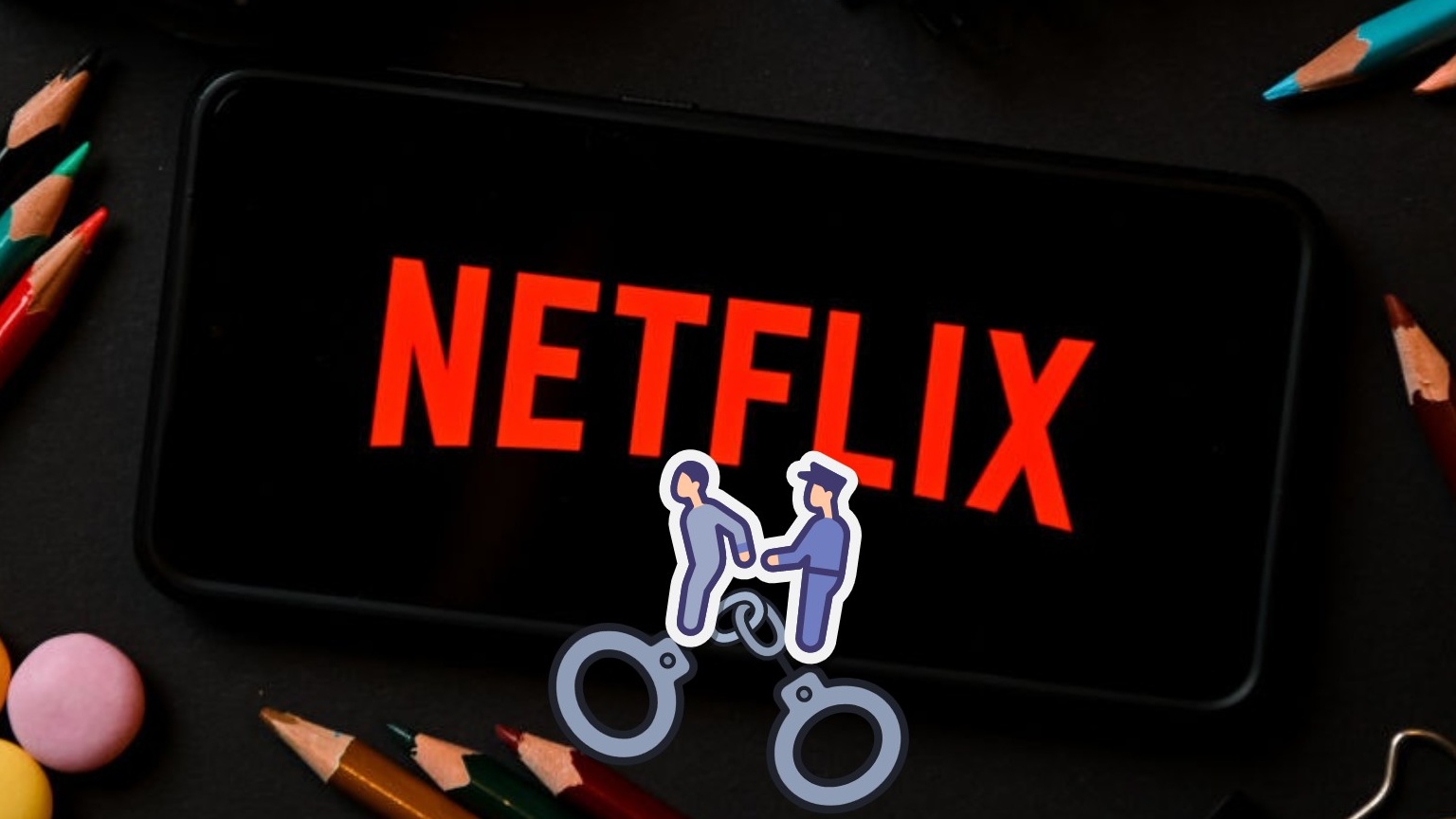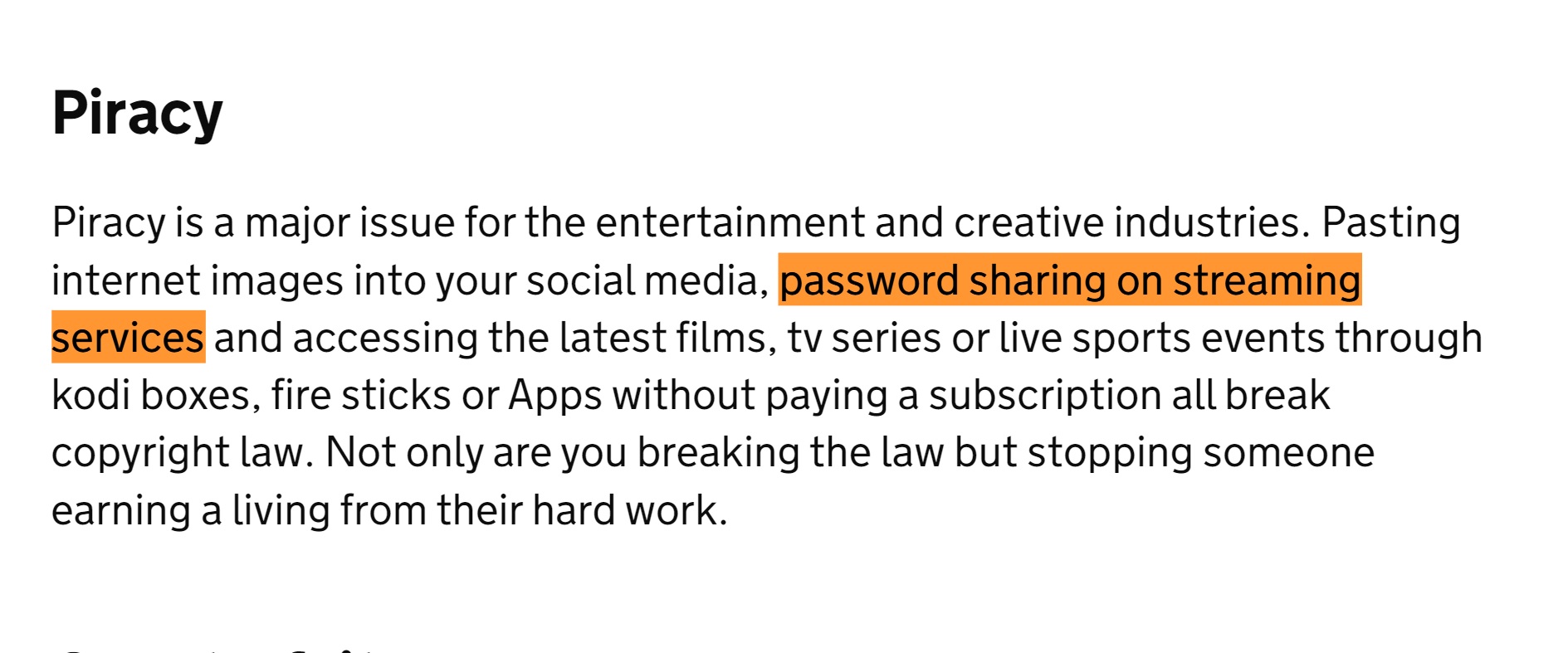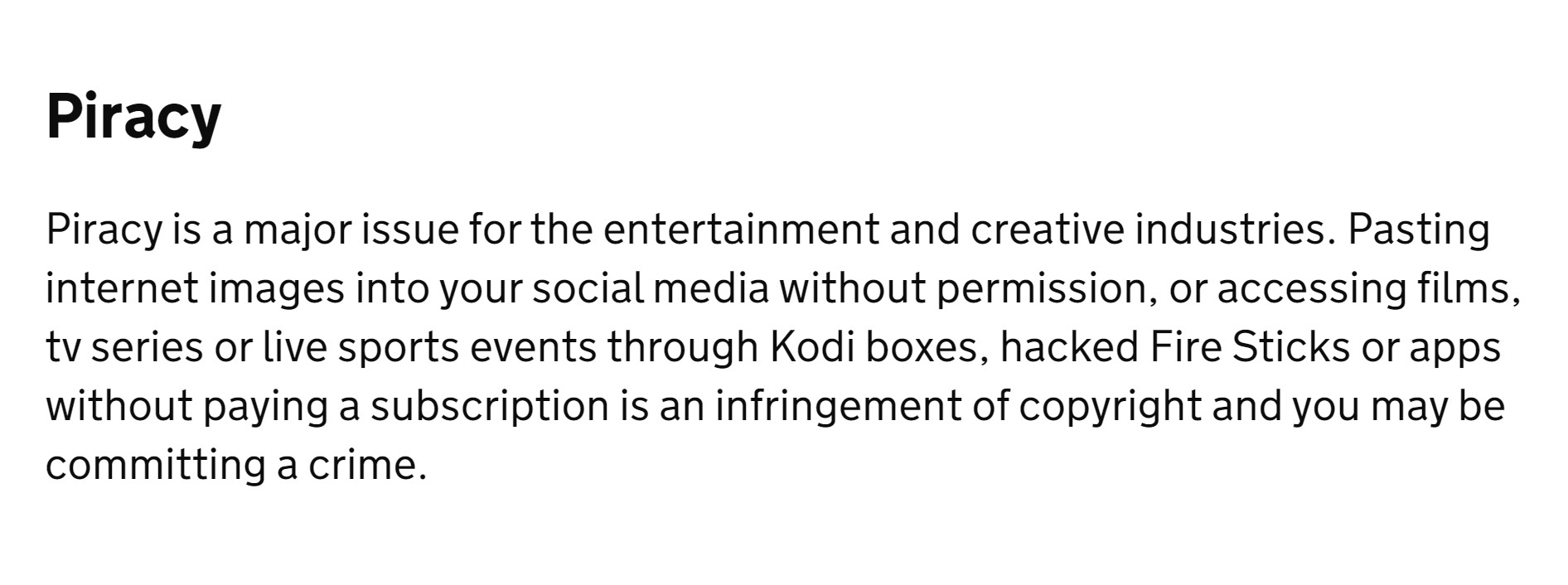[Update] Criminalizing Netflix password sharing: Did the UK just change its mind?
'Anti-password sharing' suddenly removed from piracy guidance

[Update 12/21: The IPO responded to our query on Dec. 21. It maintains that password sharing is unlawful, but it is currently revising its piracy guidelines to ensure that it provides "more clarity" to the masses. In other words, no, the UK government has not changed its mind.]
The UK's Intellectual Property Office (IPO) caused quite a stir on Dec. 19 when it published new piracy guidelines that called out password sharing as unlawful.
TorrentFreak, a news platform that specializes in copyright news, reached out to the IPO for clarification regarding the legality of password sharing. To put it succinctly, the IPO said that password sharing could put offenders in big legal trouble. However, a day after the IPO published its anti-password sharing provision, we noticed that it's now gone. Is the UK reconsidering its stance?
IPO removes anti-password streaming reference
After the IPO sent the internet into a tizzy with its piracy guidance, which made reference to the illegality of password sharing, I decided to read it for myself. However, when I perused the report, I couldn't find the contentious statement.
As it turned out (and as TorrentFreak highlighted in its updated report), the IPO removed all mention of password sharing from its website.
Here's the original statement that calls out password sharers for breaking copyright law:

Here's the recently edited, new statement:
Sign up to receive The Snapshot, a free special dispatch from Laptop Mag, in your inbox.

It's worth noting that the new guidelines were born out of the IPO's new partnership with Meta (formerly Facebook); both entities launched a campaign to inhibit piracy and copyright infringement among the masses.
As mentioned at the outset, TorrentFreak reached out to the IPO about its stance on password sharing and the UK government body delivered an unpermissive response:
"There are a range of provisions in criminal and civil law which may be applicable in the case of password sharing where the intent is to allow a user to access copyright protected works without payment," the IPO said. "These provisions may include breach of contractual terms, fraud or secondary copyright infringement depending on circumstances.
The IPO also pointed out that password sharing breaches licensing and contract laws (Netflix's terms of service, for example, doesn't allow users to share their accounts with others outside of their household).
However, now that the IPO removed password sharing from its piracy guidelines, we can't help but wonder if the UK is reneging on its position. This is just conjecture, but I suspect that the IPO likely deleted the statement because the rule makers behind the scenes are currently trying to reach a consensus on how to handle the consequences of password sharing with a more sensible approach (and clearer language, hopefully).
We reached out to the IPO to get answers on why they edited their piracy guidelines. We'll update this article if we get a response.
Kimberly Gedeon, holding a Master's degree in International Journalism, launched her career as a journalist for MadameNoire's business beat in 2013. She loved translating stuffy stories about the economy, personal finance and investing into digestible, easy-to-understand, entertaining stories for young women of color. During her time on the business beat, she discovered her passion for tech as she dove into articles about tech entrepreneurship, the Consumer Electronics Show (CES) and the latest tablets. After eight years of freelancing, dabbling in a myriad of beats, she's finally found a home at Laptop Mag that accepts her as the crypto-addicted, virtual reality-loving, investing-focused, tech-fascinated nerd she is. Woot!

